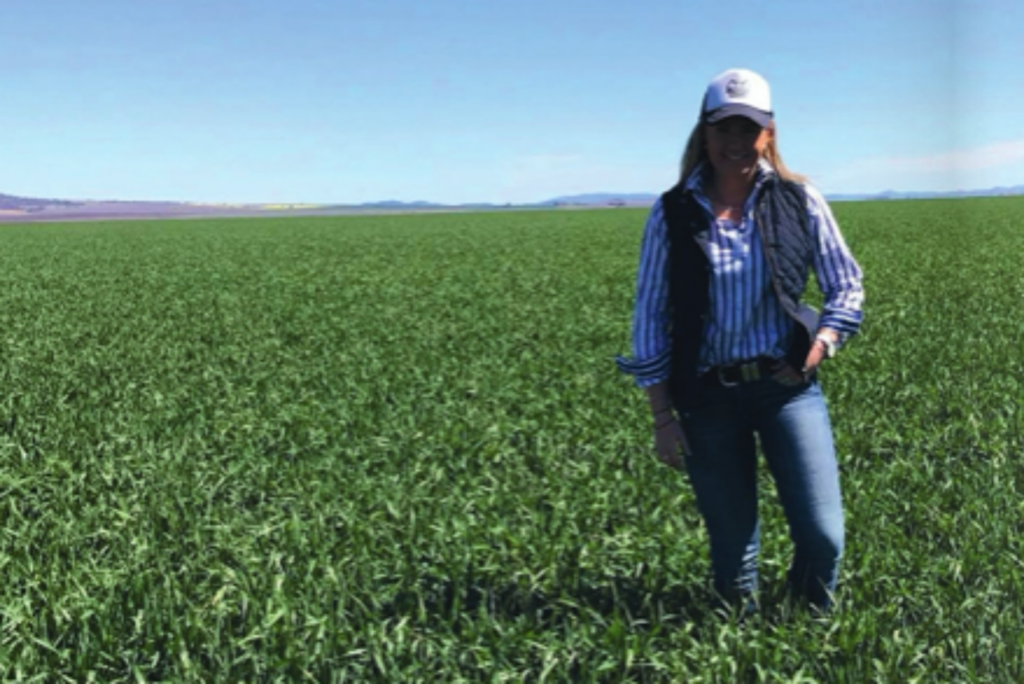Ten minutes with young farmer Sophie Clift
Tell us about yourself in five sentences.
I was born and raised on the Liverpool Plains, NSW.
I grew up with my brothers Angus and James and our parents Arna and Rob.
I went away to a boarding school (Loreto Normanhurst) in Sydney for high school (years 7-12).
I am studying for a Bachelor of education (early childhood and primary school teaching) by distance at The University of New England.
I have a passion for landscape photography.
What’s your favourite aspect of farming, or maybe you favour a particular crop or livestock?
It would have to be the satisfaction of watching a crop from beginning to end – and all the processes in between. I’m interested in all aspects of farming but have a particular interest in wheat, as it’s the backbone of the economy and can be consumed by livestock and humans.
Who is your role model and why?
In the agricultural industry, my role model would be (National Farmers Federation President) Fiona Simson. Fi is a strong advocate for agriculture and agricultural rights, as well as protecting the land.
What’s the best piece of advice you’ve been given from the previous farming generations?
I’ve been told numerous pieces of advice by older generations but I believe it’s important to be always open to change and to adopt new practices to best advance our family farming business.
Personally, what do you think the biggest problems are facing agriculture and in your area?
The biggest problem in my area (Spring Ridge) would have to be the prospect of mining and the damage it will have on the underground water aquifers, which consequently impacts our future crops.
As the Liverpool Plains is a major food source for Australians, it’s significantly important to preserve our water and land for the years to come.
But the biggest problem in agriculture today is that it’s very difficult for young farmers to expand – or even purchase land – due to inflated prices caused by foreign investment.
If you were Prime Minister for a day, what would you do or change?
As Prime Minister for one day, I’d move to reintroduce agricultural subsidies – as many other countries have to varying degrees. Because other countries have subsidised agricultural sectors, I believe it would also be a significantly beneficial policy to adopt for Australian agriculture.
Do you think there’s a divide between agriculturalists and non-agriculturalists in your area?
I don’t see any divide between agriculturalists and non-agriculturalists in the Liverpool Plains community. Everyone seems to have similar views.
In a perfect world, what would the future look like for your business?
Unfortunately, we don’t live in a perfect world but I am very confident we have a strong future in primary production, because we all need clean food and fibre. I hope our land will be protected and sustained for future farming generations.
Do you have any hobbies or interests away from the farm?
I have a number of interests off the farm, such as horse riding, training horses, photography and water-skiing in the summer months.
Would you say you are willing to try new things on the farm? Or do you try to stick with what’s worked before?
Yes, we are open to change – but we do also stick with what has worked before. As new challenges arise, change is needed to overcome them and it’s important to be willing to adopt new practices. As technology rapidly changes the way we farm, it’s important to keep an open mind.
If farming wasn’t an option, what would be your next dream job?
As I’m studying a Bachelor of education in early childhood and primary teaching, I’d be able to have the best of both worlds – farming and teaching.
What specific skills would you like to attain before heading back home to the farm?
Farming today is as much in the office as it is out in the paddock. I am hoping to gain office skills to assist in the administrative side of the business, which involves everything from bookwork to grain marketing.
Do you plan on moving around much during your time in the city, away from home at the farm? If so, what would be your ideal job or career movement?
I plan on doing some travelling in the next couple of years but ultimately, I intend to return and remain on the land, as I feel completely at home in the country.
